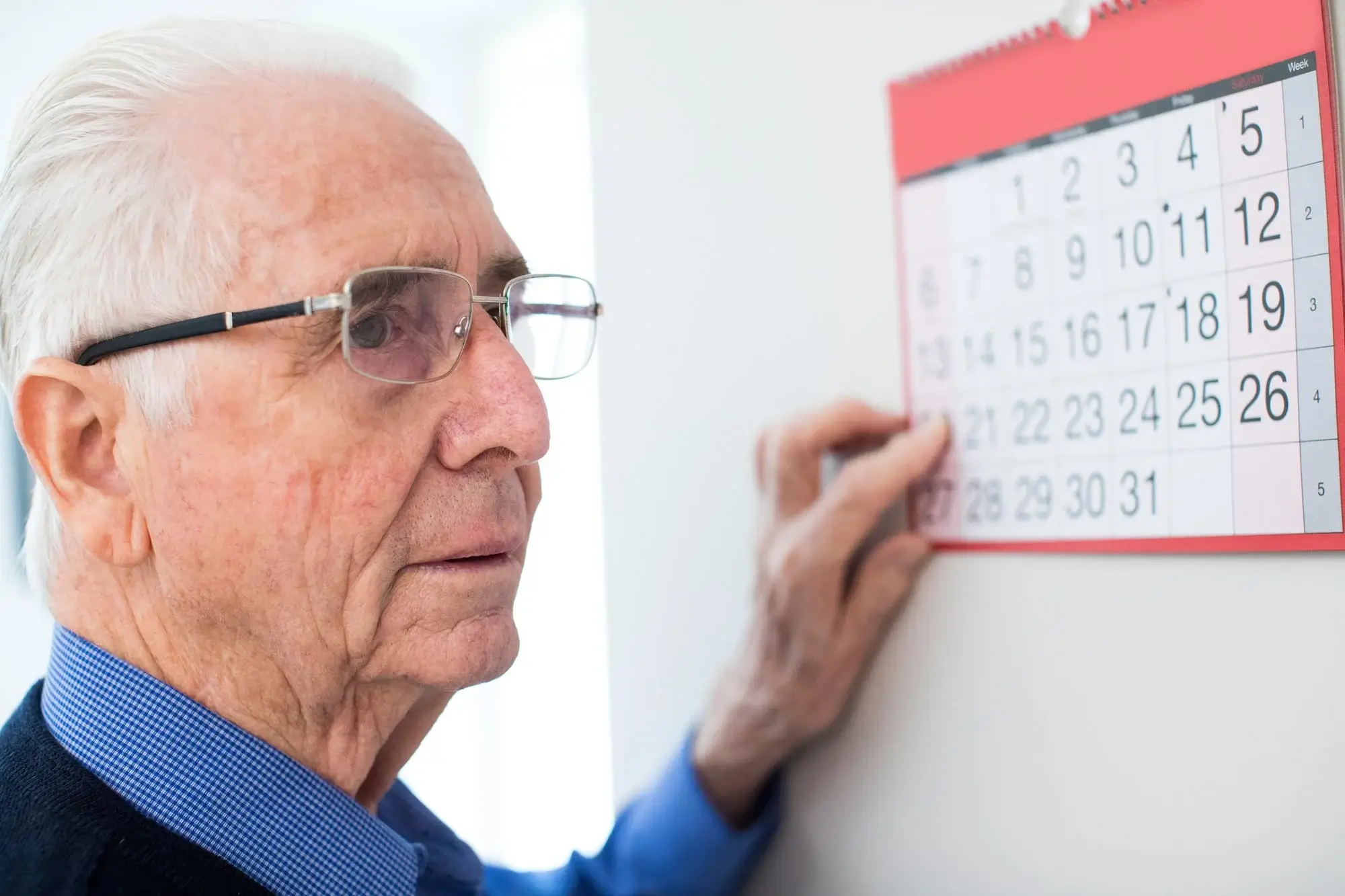Caring for a parent with dementia isn’t easy. It’s a strange, long goodbye.
And making the best decision for your loved one can be overwhelming.
How long can your mother with dementia live at home? At what point does safety outweigh the independence of your father with dementia?
This article will walk you through this journey, illuminating the key factors that shape this timeline. Stick around as we unravel this complex issue together.
The Timeline of Living with Dementia
The duration that a person with dementia can live at home varies. It depends on the dementia stage, health status, and the strength of their support system.
On average, a person diagnosed with Alzheimer’s, a type of dementia, lives four to eight years after diagnosis. But this can stretch up to 20 years, depending on other factors.
In the early stages, an individual might live independently for many years. As the disease progresses, the middle stage usually lasts 2-4 years and may need more support.
Health
Good physical health can help a person with dementia live at home longer. Regular exercise, a balanced diet, and medication as prescribed can improve health, slow down dementia, and boost the quality of life.
But if someone has other health problems like heart disease, diabetes, or mobility issues, it gets more complicated.
These conditions may need more care than can be given at home. They can also speed up dementia, reducing the time a person can live on their own at home.
Mental health is also important to consider. Depression often occurs in people with dementia, making their condition more difficult to manage at home. Regular visits with healthcare professionals are vital for maintaining mental well-being.
Support System
As dementia begins to impact cognitive abilities, everyday tasks become difficult. A supportive environment can lessen anxiety and confusion common in dementia, enabling the individual to live safely at home for longer.
Family and friends provide emotional support and help with daily tasks, preserving normalcy and dignity. Healthcare professionals offer medical expertise to control symptoms and guide you through dementia-related issues.
The Art of Staying Independent With Dementia
Early-stage dementia doesn’t mean an immediate loss of independence. Many people with dementia live alone for years, handling daily tasks with little help. This time can be a learning phase where they adapt to their changing abilities.
As dementia progresses, the person needs more support from family and friends. Eventually, they will need a full-time caregiver.
Safety First
Get rid of anything that might trip someone, like loose rugs or clutter.
Keep scissors, knives, and cleaning products locked away.
Add safety features such as bathroom grab bars and a shower stool to avoid falls.
Dementia affects eyesight and the ability to understand what they’re seeing. Make sure there is adequate lighting.
Technology, like alarms or tracking devices, can also address concerns about wandering. These changes protect against accidents and make the home easier to navigate.
Sticking to a Routine
A structured daily routine can give a sense of security to someone with dementia. Familiar activities like morning walks, regular meals, and bedtime rituals can provide comfort and control.
They also help reduce confusion and anxiety, which are common in dementia. Predictable routines offer a reassuring anchor amid the disease’s uncertainty.
Regular Healthcare Checkups
Routine health checkups are key in managing dementia. Regular appointments let healthcare professionals track disease progression, manage co-existing medical conditions, and adjust treatments as needed.
They also allow caregivers to discuss concerns or challenges, ensuring the best care for the person with dementia.
The Role of a Caretaker in Dementia Care
With a dedicated caretaker, a person with dementia can extend their time at home. This caretaker might be a family member, friend, or professional caregiver.
Personal Care
Caretakers assist with personal hygiene, meals, and medication. Their support ensures the person with dementia can focus on enjoying their day-to-day life.
Emotional Support
Companionship and emotional support improve the quality of life for a person with dementia. Shared activities, conversations, or simply being present provide the necessary support.
Professional Dementia Care
Sometimes, hiring a professional caregiver is the best choice. It provides relief for family members and ensures expert care. Professionals bring specialized dementia management training and resources that enhance the person’s quality of life.
Considering Residential Care for a Parent with Dementia
The decision to move a parent with dementia into residential care is complicated. Here are some factors that can guide your thought process:
Assessing Care Needs
When a loved one’s needs exceed what you can provide at home, consider residential care. This decision often comes when their requirements become too complex or demanding for home care.
Addressing Safety Concerns
Signs like frequent falls, wandering, or aggressive behavior indicate a need for a safer environment. Residential care facilities can handle these challenges and ensure the safety of your loved one.
Managing Caretaker Stress
Taking care of a loved one with dementia can be stressful. If this stress impacts your health, it’s essential to consider other options. Remember, caring for yourself is as important as caring for your loved one.
How Long Can a Person With Dementia Live at Home?
Determining how long a person with dementia can live at home depends on the individual and your ability to care for them. Balancing their comfort and safety with the appropriate level of care is key.
Remember, seeking help isn’t a sign of defeat-it’s a step toward providing the best care for your loved one.
If you or your loved one is dealing with dementia, Royal Garden Board and Care Homes can help. Our facilities are designed to ensure their safety, comfort, and dignity. Our professional caregivers provide personalized care, understanding each resident’s unique needs.
Reach out to us today for more information or to schedule a tour. Let us support you through this journey.

